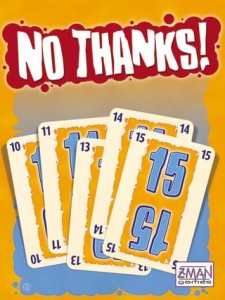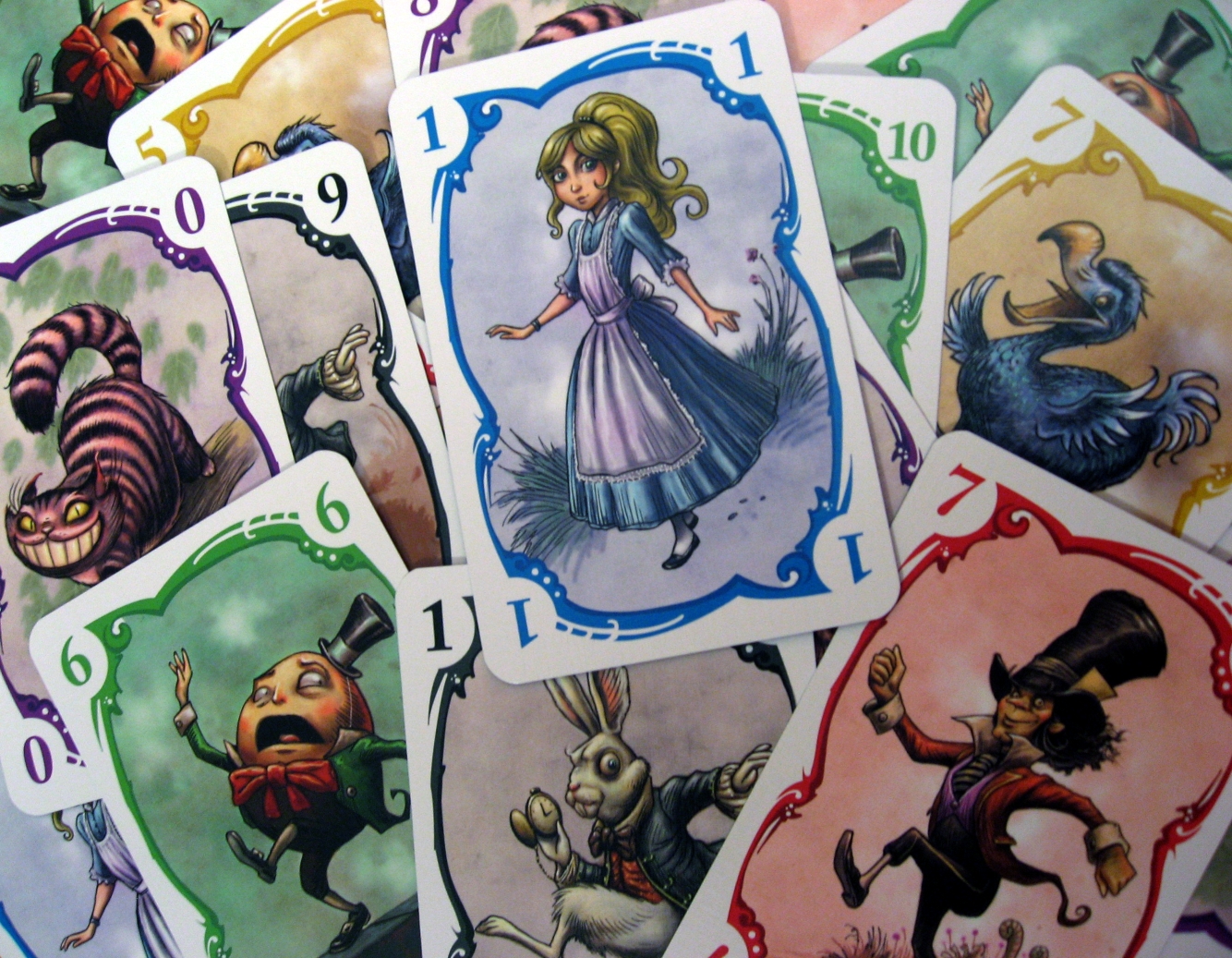Parade

I think this is my favorite small card game in the universe. It does an excellent job of mitigating the luck factor that can be frustrating in card games, while also offering a tonne of interesting decisions and strategies to play. It also does one thing that is very rare in a game. Plays well as a 2 player and as a 6 player game (plus all numbers in-between).

Parade is designed by Naoki Homma from Japan and in it you are looking to get the least amount of points. 6 cards are laid out in a row at the start to form the parade (from Alice in Wonderland) and on your turn you lay a card from your hand of 5 at the end of that Parade. If your card is a ‘Green 4’ you ignore the first 4 cards on the parade, but if any of the rest are 4 or lower and/or green you take them and they become part of your score. What makes this game great is that at the end of the game whoever has the most cards of each colour gets to flip them over and they become worth 1 point each. So if you do have to take the Red 7 & 9 (16 points), you can attempt to take a lot of red cards and reduce your score to say 5 (for 5 red cards). There is no real ‘bad’ hand, high cards allow you to skip a lot of cards, but any you can’t skip you are almost guaranteed to take, low cards are vice-versa. Lovely purple box too.
Red 7

The latest and greatest from Carl Chudyk, a maverick designer who likes to test the limits of what’s been done before (see Flowerfall for an example). 49 cards, 1-7 in the 7 colours of the rainbow. The golden rule, if you are not winning at the end of your turn you are out! You start with 7 cards plus 1 in front of you, and you can play a card in front of you, one to the middle to change the rule, or both. However, you are not going to draw cards, so playing two will drain you fast.

Just a second, did I say change the rules? Why yes indeed! Each colour is a rule about how to currently win the game, meaning the game is about trying to cover as many bases at once with the cards in front of you. The more you play, the better you get and the more the game opens up to you. A brilliant little design, with a round taking about 5 minutes, and variants for longer play and more complex rules.
No Thanks

Another, take the least points possible game. Every player starts with 11 red chips. Place a card in the middle of the table (numbered 4-36) and on your turn either place a chip on the card to not take it or take the card (and receive the points on it) and the chips on it. Obviously if you keep putting chips on the cards, you will run out of chips and have to take the card, which would suck of it was 30+, hence the balancing act. However if you have cards that are consecutive they only count as the lowest number (i.e. 26, 27 & 28 would count as just 26 points). But 9 cards are removed from the deck, so taking 19 & 21 doesn’t mean that 20 is in the deck…

A 20 minute push your luck game, that’s easy to learn but leads to some tough decisions and really fun game play.
Sky Tango

Brand new, a game about Suns and Moons (and numbers), rising and falling. It’s really quite gorgeous, but quite cut-throat at the same time. The goal is to try and collect as many cards as possible by creating runs of 5 cards in a row, in either Sun or Moon.

Cards can be added to either end of the row, but must be sequential. However, your opponent can also play on your card rows and the only time you draw is when your hand of 5 runs out. If you can’t make a legal move (by adding to the end of your or your opponents rows) you lose all the cards you played and must start again. There are also eclipses which can also be played on top of Suns/Moons to break up a row of cards (and hose your opponent). When played as a 4 it also becomes a partnership game, which I always quite enjoy.

